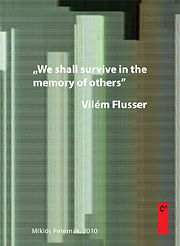Research for my current work "a PEotST" and its upcoming manifestation in Ji Yoon Yang's radical new exhibition project "NOW WHAT" has lead me deep in to Derrida's Specters of Marx: The State of the Debt, The Work of Mourning & the New International which, I have found, much to my humbling satisfaction, has not only a beautifully written thesis, but also several direct points of confluence with Gratitude for Technology
which, I have found, much to my humbling satisfaction, has not only a beautifully written thesis, but also several direct points of confluence with Gratitude for Technology and "a PEotST". I started here with some ideas about the notion of justice and I hope to follow up in the near future with a post on the notion of the specter.
and "a PEotST". I started here with some ideas about the notion of justice and I hope to follow up in the near future with a post on the notion of the specter.
"The Electronic Revolution has not yet found its Marx" wrote Wolfgang Schirmacher in his prescient article "Net-world from the inside" in 1997, but what Marx could the current 'revolution' possibly require?
At the dawn of the age of Quantum Computing and the exponential acceleration and miniaturization of many of the essential industrial processes on which our daily life is based, it is clear that the social-critical position customarily embodied in the left, seems to have reached an impasse. What is left of the left today but a resistant force to the propulsive force of capitalist progress? Would the death of the Socialist Party in France, as envisaged by Bernard-Henri-Lévy herald the emergence of a radically more effective form of political mobilization for social justice?
| The Daily Show With Jon Stewart | Mon - Thurs 11p / 10c | |||
| MBA Ethics Oath | ||||
| ||||
Indeed even the viability of the notion of a party, of party politics itself is being held up for re-evaluation. "Now, as one can see foreshadowed, it seems, everywhere in the world today, the structure of the party is becoming not only more and more suspect(and for reasons that are no longer always, necessarily, "reactionary", those of the classical individualist reaction) but also radically unadapted to the new - tele-techno-media - conditions of public space, of political life, of democracy, and of new modes-or representation,( both parliamentary and non-parliamentary) that they call up." Derrida writes in "Specters of Marx", powerfully problematizing the state-party relation which has dominated global politics for the last 200 years.
"...liberal democracies, constitutional Monarchies, Nazi, fascist or Soviet totalitarianisms. Not one of these regimes was possible without what could be called the axiomatics of the Party. "(p.127)
Central to Derrida's meditations in the book is the notion of justice, justice, which he offsets, in his accustomed punny methodology with the notion of justness, justesse correct- or exactness (de justesse means just barely) approaching with the engineer's ruler the infinitesimal convergence-point of truth, to which any application of justice must ascribe.
"Specters of Marx" is a radical text, more radical than Marx alone could be today and too radical for Derrida to imagine writing while the Iron Curtain still divided the world in two. I was startled to see we make a similar call for a thoroughgoing, indiscriminate and nonjudgmental reckoning and acknowledgment of the 'whole truth' of a given political manifestation, integrating illegal, black/grey market and otherwise prohibited-though-persistent sex and drugs, body parts and slave dealing modes of social organization active in every society.
(p.103 my emphasis).
Whereas the politics in "Gratitude for Technology" is grounded in a material-economic understanding, Derrida's is polemic and prophetic. In the Communist Manifesto there is always the problem of the persistence of an intellectual elite layer in what should be a completely egalitarian paradigm: that of the Communists who serve the function of the guiding imagination of the proletariat "The Communists, therefore, are on the one hand practically, the most advanced and resolute section of the working-class parties of every country, that section which pushes forward all others; on the other hand, theoretically, they have over the great mass of the proletariat the advantage of clearly understanding the lines of march, the conditions, and the ultimate general results of the proletarian movement." (C.M. II(2)) Even in Derrida's New International, we must assume a judgmental intellectual hegemony as a moderating and visionary force leading the world toward justness. Since this campaign will not be consummated in the foreseeable future, what we need (to be satisfied with) are (operating) principles.
Only through embracing and understanding the complexities of our current age can we hope to cultivate satisfying activities which will hearten us and engage us as in a world of economic production under just conditions (as opposed to the current regime of "maximum profits (and/)or bust"). The New International hopes to supplant or supplement earlier teachings, rituals, strategies, such as those of the Bible scriptures and church service, with more prosaic ones which call citizens to actively engage with and question their own reality. The Specters of Marx, thus regularly confronted and encountered, would seem to necessitate an institutionalized scholarly rigour in a mode akin to that of the Chassidim or other orthodox faithful who regurgitate to re-metabolize their scripture at every social juncture.
The prospects seem dim for the cultivation of what would be the requisite appetite of 'learning for society's sake' among the general populations of our contemporary states where education is merely one of the many discouraging processes necessary for the formation of the contemporary political subject, indoctrinating, assimilating and domesticating the pupil, stripping it of its confidence and of its just conviction.













No comments:
Post a Comment